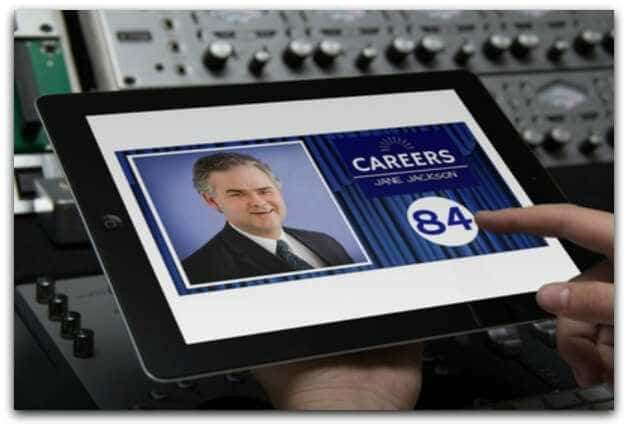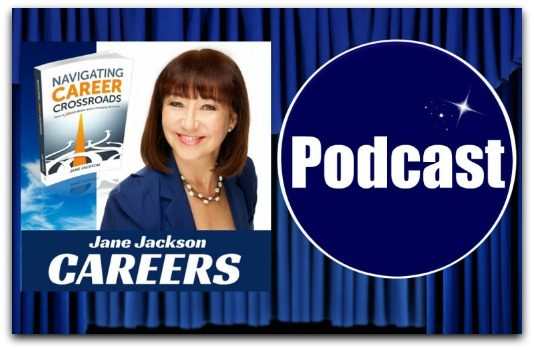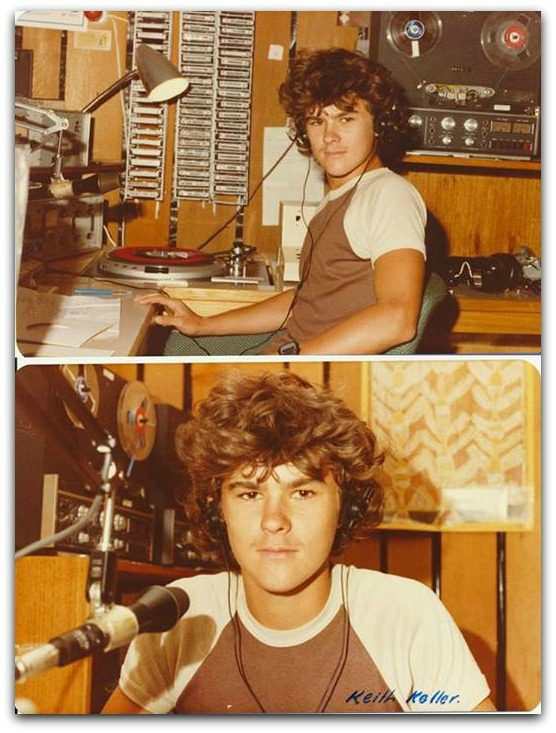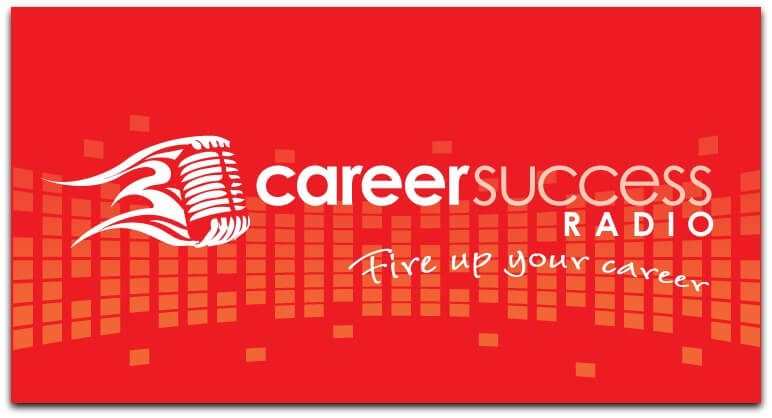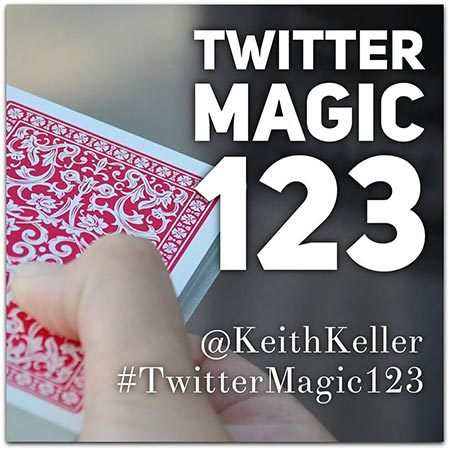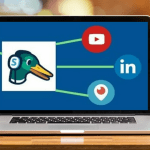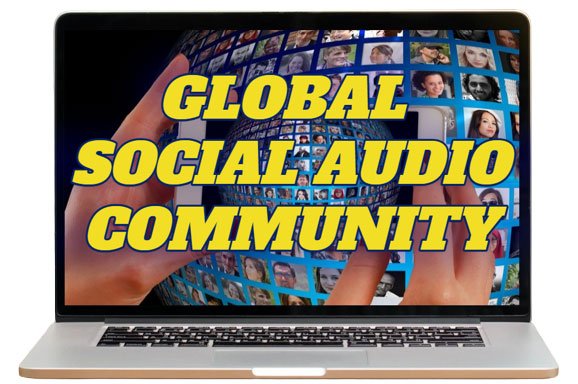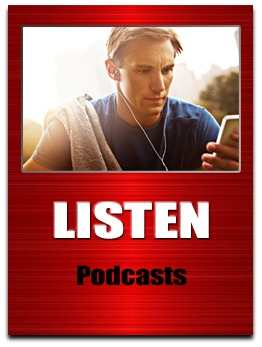THE JOURNEY SO FAR
An interview With Jane Jackson

Recently I was featured on Jane Jackson’s “AMAZING PODCAST” and it really gave me a great chance to reflect on the career changes that I have made over the years. I also got a chance to really appreciate those changes that were thrust upon me along the way.
I have also spent some time this week segmenting the interview into smaller themes and getting them transcribed to make it easier to listen to as your time allows.
If you prefer you can follow along by reading the questions and answers.
WHERE IT ALL BEGAN (2REM FM)
Podcasting really is my thing and the whole idea came about out of my love of radio.
Here’s me doing my very first radio show in March 1982 at 2REM FM in Albury.
I still have a recording of that first show (on cassette - lol)
Jane Jackson: Welcome to my careers podcast, where I interview fascinating professionals who have made amazing career changes.
Now, I am very fortunate to have, on the show, a twitter guru. This twitter guru is Keith Keller, who is now well known internationally as the Global Twitter Marketing Specialist. He is a popular speaker on the subject too. He’s appeared on numerous radio shows, teleseminars and webinars across the United States and Canada, UK and Europe as well as Australasia.
His regular tweets, @KeithKeller, are testament to his passion for sharing the latest information about Twitter, as well as other social media platforms. He certainly has an ever growing list of success stories. Today he has over 43,000 twitter followers. Keith now has a very comprehensive free podcast series and workbook to share called, ‘Crack the Twitter Code’, and offers one-on-one coaching via skype.
He’s also had an interesting career journey as a Global Career Coach as well, and was the host of career success radio for many years. So, lets find out about this fascinating entrepreneur Keith Keller. Welcome to the show Keith.
Keith Keller: Wow, I could listen to you talk about me forever.[laughs]
Jane: Yeah, I know you like people to talk about you, Keith, and you sound just like the most fascinating man. You’ve had such an eclectic career journey, and now, it’s the Twitter Guru. We’ve got so much to find out before we get to the twitter side of things.
So, as you know, this podcast is all about career’s, so how about, to kick us off, you tell us a little bit about your early days, and how your career journey progressed.
Keith: I’m so excited to be able to talk about this because, you know, I’ve now been doing this for a few years.
I’ve been around the block a few times. But, I started in the 80’s as, just a guy working in the city, hated his job, with dreams of being a radio announcer and/or a professional musician. That was ultimately my goal in life, to be a radio announcer.
At 16 years old, I did a radio show every week after school, played the latest songs. I’ve still got photos and demos of me. I’ve still got my original show that I did in March 1982, with me as a young person introducing the ‘Police’, and various other 80’s bands. I always had in my blood, this creative spark, always. Ever since I can remember. So, I came to Melbourne in 1984, I grew up in the country. I carried on in Melbourne.
I did radio announcing in school, after work for about a year. Every second night I went to this radio announcing school - there is such a thing. After about a year, nothing was happening, and I was working in this really terrible job. So, I actually got a second opinion.
I actually went to another guy who charged me by the hour, and after about three weeks he said, “Keith, I got to be honest with you mate. You just don’t have the right voice for radio”. I said, “Oh, ok”. I mean, I’ve just been going to this class every week for a year, and I thought I was making progress. It’s a really interesting point because sometimes people tell you their professional opinion, and you’re a young person, you’re inclined to believe it. So, I stopped. I can’t believe it now, that I did that, but, I stopped. I was getting a bit disheartened going to this radio school every week for a year.
I was going from jobs at various places, and not getting them, and this guy gave me a very insightful reason, why. ‘You just don’t have a voice for radio’. So, that’s ok, you know, my other passion is that I love music.
I was writing my own songs, playing in bands. I did have very long hair, longer than my wife, in a sort of Bon Jovi leather pants/type of look, if you could imagine that. Very 80’s. I wrote quite a lot of, I believe quite good songs. No-one else agrees with me, and no-one bought them.
If you want to get a picture for what my songs were about, I wrote this song called: “Make a Difference Today” and I say that, imagine Bon Jovi doing a concert for the Dalai Lama’s birthday, which is actually quite relevant, ‘cause he was 81 yesterday. So, if you could imagine that picture, if it’s not a dichotomy, I wrote these meaningful songs with a really, really, really loud guitar. So, obviously there’s not a market for that, because I didn’t make any money. That was really the essence of who I as at that time
Actually, I am still that person.
I couldn’t make any money, and money is important. So, I just kept going with this day job idea, which I hated because I was only there to pay for my amps and, you know, radio tuition, and leather pants. I’m a vegetarian now so that doesn’t matter to me, but at that time I wasn’t. So, I was wearing leather pants, I had all the gears, I had the latest haircut and you know, I had my hair dyed, and I had the look. It’s the quintessential rock star look, but I had no talent, very little talent.
I can say that now because I’m looking back on my earlier self. But, the middle zone was when I said, “Ok, well I can’t make a living out of music, I can’t make a living out of radio. I better just do the sensible thing, get married, buy a house and settle down.
That’s a very, very strange opposite. But, I did that for about 20 years. We bought a house, we got married. I’m still married. My wife’s the best person in the world.
She’s my best friend. I live in a really lovely house, an hour from the city, 10 minutes from the beach. So, I don’t regret that phase at all. But, what I had to do in order to fund that lifestyle, is, I had to do a whole series of really horrible jobs. Which is exactly what this show’s about, people who hate their jobs.
We did a radio show about this, every Tuesday at 10am, for 2 years. I ran a radio show to say, “well ok, if you hate your job, I’ve got someone on the radio show talking about how they got a job in radio. Next week we’re talking to someone about such and such, and how they make a living as a graphic designer. In three weeks time we’ve got a special resume? addition, so listen in, because we’re going to help you write your resume?”.
It was fabulous, I mean, we were listening to 126 countries. I’ve got 108 shows still live and listenable on itunes…live there forever now, so proud… and this was about the same time period that, I realised, that the online world is where all of the juicy stuff was happening, because i quit my job when I turned 40.
That in itself is a story. Basically, the idea was, I hated my job so much, and it was really bad for my health. You’ve got two choices, you can just suck it up and keep going - and some people are very clever at that ‘cause they can morph and they can change.
I was never that clever at that, so I just quit. I had to go to my boss and say, “mate, this is not working. I have to give you notice, and I have to find something else”.
CAN YOU TELL ME ABOUT YOUR TERRIBLE DAY JOBS?
Jane Jackson: Can you tell me about your terrible day job?
Keith Keller: Well, when I say terrible, I didn’t get beaten. I wasn’t, you know, thrown out a window or anything. But, the point is that, I came to Melbourne in 1984 as a young person, ‘cause there was no work in Albury, and I wanted to be a radio announcer, and I got a job in the public service.
The public is a fantastic institution, but the job was just so boring. As a creative person, I was brain dead 98% of the time. In a way, brain dead is better than broke, so I went. But, I got to a point where I just couldn’t do it anymore, and actually, the government went through a lot of restructuring, and I got retrenched and thrust into the private sector.
It was very, very scary at the time, but it was actually the best thing that happened to me, because it made me take control of my life and say, “ok, boring is better than broke”. But, now we’re really in trouble, ‘cause I hated the jobs.
Like, I’ve said many, many times, that there’s been a couple of times in my life where I was treated really, really atrociously at work, and most people would not accept that. I’m a bit embarrassed that I did. Maybe it shows me my character, I’m quite a passive person, quite a patient person. I just sucked it up, ‘cause we just bought a house, you know, I just got married and I have a beautiful wife, and I didn’t want to let her down.
So, I just went to this day job and just got treated atrociously. Like, yelling from the boss in front of clients in the busy showroom. Just really, really awful humiliating things.
On my 40th birthday I just went to the boss and I said, “Look, I can’t do this anymore. I just can’t do this anymore. I’m sorry. I know, I’ve been trying, I’ve been really pushing the parameters, I’m quite happy to give it a go”.
I was getting sick, you know, I was getting ill. I’m sure you’ve dealt with clients that have issues with their career, and this is exactly why I’m so excited to come on this show. Because I was getting ill, I was getting depressed, I didn’t want to go.
Everything was going wrong. I was fighting with my wife ‘cause I was angry all the time. So, I just left.
Not everyone can do that. Not everyone has the courage or the capacity…both, to say, “you know what, anything’s better than this, anything is better than this. I hate my job, I can’t stand it. Five days out of seven I’m miserable, nothing makes up for this. I’ve got to solve this”.
My wife agreed. We’ve paid a bit off the house by than. She’s very supportive. This is where the fun starts, this is actually where my life began. This is where my life began. I went to a career counsellor and I said, “I have no idea what to do”. I really, really recommend career counsellors ‘cause I was one of them for a while and they’re really cool. I said, “I don’t know what to do. I just know that I hate the jobs that I’ve had so far, and I honestly have no idea what I want to do next”.
She gave me this really surprising answer. She says, “You know what Keith, I think that you will make a sensational career counsellor. Because you’ve worked for 20 years in jobs that you’ve hated, you understand the workforce, and you bring that wisdom of engagement with you ‘cause you’ve done it. Consider that. You’re good with people”, we did all the tests…I think I did my ‘Myers Briggs’ I am a ‘ENFP’…you know, we did more tests, and she says, “you know, I think you would make an excellent career counsellor. Something to consider, ‘cause nothing else is coming up”. I did it, I went back to uni, I studied my guts out for a year.
After 20 years of not doing that, it was quite difficult, but I got my graduate diploma in career education from RMIT. This is where it got really interesting. Instead of saying, “ok, I can just put flyers in the letterbox, I could just advertise in the local paper. I got really, really, really interested in doing something else.
So, we started this radio show called ‘Career Success Radio’, what a cool idea. Every week, for two years, we actually practiced our craft on air with real people.
Jane: Fantastic.
Keith: So people would ring in…and this is a true story Jane…people would ring in from London, Vancouver, Toronto, New Caledonia, Brunei, Peru, and say, “mate, no-one in my town speaking like this. I don’t have this option in my town. I’m staying up for you”.
I got a guy actually rang and said, “Mate, I get up for your show at 3:35am here in London”, actually I think it was in Birmingham. “It’s 3:35am, but your show is so valuable to me that I get up for it. I don’t stay up for it, I get up for it”.
What a great thrill to know that someone actually valued my wisdom so much that he got out of bed at 3:32 in the morning, allowing 3 minutes to, you know, go to the toilet and make a cup of tea. Then my show would start, and he would ring in live and go, “mate, I’m loving this”.
So, this is the essence of my creativity. I wanted to be in radio, I wanted to be in music, I am a performer at heart. Most of my colleagues at the time…this time it was 2008…most of my colleagues at the time were putting flyers in the letterbox, they were putting ads in the local paper. They might of had a website, most of them didn’t.
They were doing all sorts of sort of offline things, and they were sort of pooh-poohing a lot of what I was doing. A lot of them were saying, “mate, this is not going to work, what a waste of time. What are you doing that for? Why don’t you just go into the city, put a suit on, hand out flyers”. I said, “ok, you do that if you want to, but I don’t want to do…”
I didn’t want that model.
Jane: Yeah, you know what is interesting is that, you are actually ahead of your time, because by having the radio show, people were listening to your voice. They were able to phone in and speak with you. They were getting to know you.
That’s such a good way to market, so much better than handing out flyers, because a flyer is really impersonal and I think this leveraging what you really enjoyed. You know, you were talking about how much you loved being on the radio right from a very, very early age.
Over the years you were able to hone your craft and find out what you were really passionate about, and you managed to get on to the radio, which must of been such a thrill, and to be able to assist others who were stuck in their careers too, as you had been for so long. What a great way for things to turn out for you.
Keith: It was a very, very, very light bulb moment for me. I mean, this is 2008, I formed a company called, ‘Career Journeys Australia’.
My tag line was, ‘Career change is not only possible, it’s exciting’.
I really wanted to let people know that, if you hate your jobs, I’m right here for you. Not just because there’s money in it, I’ve done it. I personally believe that the best people in the world have experienced their craft.
There’s plenty of people that have done stuff that they teach indirectly because there’s money in it…his actually is very common in the social media space, but, “I’m doing it. I’ve left my job, I’ve hated my job, I’ve had to jump off the clip and feel the fear, and I’m with ‘ya”.
So, when someone would come to me with all that, I actually had that experience. That was a relatively exciting time.
For about five years I did that. But, I noticed that I was getting much more joy, and many more enquiries about, “Keith how are you doing this radio thing? How do you get people to listen?” Like one particular show…I’m so proud of this…one particular show had 1800 downloads in 3 days, in 126 countries.
Jane: Wow! Amazing.
Keith: So, I thought, there’s something in this, like separate to the idea that…as you said, a flyer is very impersonal, you know, it just didn’t suit me to go into the city in a cold morning outside of bank district and just hand out flyers to corporate people coming out of the train station.
That just didn’t suit me. It’s just not my model of the world. Whereas I knew that people in Peru (etc) were listening to my show and going, “look, I really hate my job, and I can listen to you silently”.
So many people came to me and said, “Keith, I never listen to the show live, but you know what, every week I download your show when I walk the dog”.
FROM PODCASTER TO TWITTER DUDE
Jane Jackson: So, what’s happened with the radio show now? Because I’m trying to connect the dots to find out from the radio show to now, with your amazing social media following on Twitter.
Keith Keller: Yeah, so what happened between 2008 and 2010 was that, we ran this radio show every week, and because I was proud of it…and it always comes from this position, I wanted everyone in the world to get it, and have access to it. It wasn’t ego, it was just, I’ve done something I’m proud of, I want to share it. I tried everything. I tried Facebook, I tried LinkdIn, I tried Twitter. We even tried putting a slightly kooky video on Youtube.
Of the four things that we were trying at that time…there’s many, many more things to try now, but Twitter was far and away the most successful. Because I’m a bit of a researcher at heart, I said, “ok, well I’ll try this”.
I developed a system, and then within three days we had like a thousand downloads, by putting it on Twitter. People are going, “Keith, you got to teach me how to do this”. “Mate, what are you doing? Can you write a book about that, can you do a podcast about that? You got to come and speak about that, ‘cause that is just so interesting”.
www.ActorsTweet.com
So, I did, I started coaching people about it. I’ve got hundreds of products about this. I did one for actors recently in L.A., it was so amazing.
An actress rang me and said, “I’ve been hearing about you, can we make a series of videos for all my actress friends? ‘Cause we can’t get any work, ‘cause we don’t know how this twitter thing works”. “Yeah, yeah, no worries”.
We did this five part video series about how to use twitter if you’re an actress in L.A. Sold hundreds and hundreds and hundreds of copies. Hundreds of copies, because you’ve got this really targeted market of people that really want to know.
I was just sharing what I know and putting it on tapes, so to speak, to use the old recording analogy. It was a win-win. I was sharing what I know, they loved it, they got work, they got more movies and, you know, more kudos. So, it just built from there.
The radio show was fun, and the career counselling was good, but this was something new.
It was something that was very personal to me. The actual quintessential moment in my career, I still remember this, it was July 2010 and I was watching a DVD from Brian Tracy, and he said…this was just before the queen’s birthday holiday in Australia, which means we always go away…and he said, “I want you to contemplate this, this weekend, if you’re not in the top 10 percent, if you don’t want to be”, this is his exact quote,
“If you don’t want to be in the top 10 percent of your field, you’re in the wrong field”
If you don’t wake up every morning and you want to get better, you’re in the wrong job.
I thought, “gee that’s very profound”.
Then he said, “ok, I challenge you. What do you want to be the best in the world at?”. You know, it was like that quintessential epitaph moment…”What do you want to be known for”? Big statement, just happened to coincide with a three day break. So, I bought a little blank book, and I sat there after my bush walk and a cup of tea at night, and I thought, “oh ok, what is this? What do I want to be famous for? What do I want to be the best in the world at?”
Then it just popped into my head, that this Twitter stuff’s working, I’m going to be the best in the world. ‘Cause there was a lot of them.
There was about twelve of them now. I was doing my head in trying to keep up with Google Plus, Snapchat, Periscope and you know, these things weren’t invented then, but there was other variations. So, I decided in July 2010, that I’m going to be the best in the world at Twitter. Or, at least in the top 10 percent.
I’m proud to say that I’m now in the top 1 percent. I’m not the best in the world, I’m not even in the top 100, but I am in the top 1 percent, because I love it, I just love it.
Jane: Keith, it’s such a good story because once you identify what you want to do, you had a goal, and I think that was the difference between your earlier days and than coming to 2010 and realizing, “yeah, I found my niche. I really enjoy this, and now I’m going to make sure I’m one of the top in the world in this actual field”.
So, now you’ve become…and I think of you as, the Twitter Guru, because it was really being directly through twitter that I found you. Because I found another gentleman, whom I interviewed on the podcast, Brian Basilico.
He said, “Jane, if you’re in Australia and you haven’t met Keith Keller, you have to get in touch with him”. So, he introduced us and then we’ve been tweeting each other for the past few weeks, and months actually. So, I’ve actually got to know you via Twitter. Isn’t that amazing? So, it’s great to be able to talk to you now.
HOW DID YOU CRACK THE TWITTER CODE?
Jane Jackson: And so now that you have become the Global Marketing Twitter Specialist and you’re in the Top one percent, I’d love to find out more about your business. so you know, tell some more about Crack the Twitter Code - the podcast series that you’ve got and everything that you’ve got in the pipeline as well.
Keith Keller: Well the very very interesting thing about this space about offering something for free as a way of creating momentum, as opposed to and let’s be very clear about this, handing out flyers to corporates coming into the train station because everyone’s seen that and everyone’s seen the personal trainer at 6am going mate you want to do some personal training with me here’s the first lesson free.
Fine I’m on the way to work, I’m running late, it’s NOTHING, it’s not the slightest bit related to what that person’s thinking at that time.
So what I did and what I decided to do is very very clearly I’ve got an ebook and a podcast series which is completely free because you don’t… many people don’t know who I am and that’s completely fine, I mean Melbourne, Australia is a zillion miles away from most countries of the world and you probably haven’t heard of it.
So I’ve got a free ebook at www.GlobalSocialMediaCoaching.com/ebook
… or just go to my website www.KeithKeller.com.au
Then what I did was I thought ok because I LOVE podcasting, I put that ebook format into 10 digestible and this is what I love 10 digestible 10 minute chunks, ten interviews, ten minutes each.
So you’re busy, it’s 2016, we’re rushing off our feet, so today just listen to part one.
It’s ten minutes, it’ll get you started.
Tomorrow, listen to part two and after ten days, you’ll know everything that I know or everything that I knew at that time because things are changing all the time and if you want to know more ’cause this is what I do.
www.CrackTheTwitterCode.com is my one on one coaching system.
I actually ring you and we chat about what you need, not generically, what you need particularly and I’m very proud of this system.
It’s like a three tiered system - free ebook, free podcast, paid coaching. It’s a very robust, online model.
Jane: I think having a model like that is fantastic because it’s like an ascending transaction model.
People can first of all follow you on Twitter, then if they correspond with you and they find out more about what you have to offer - then you offer an ebook so they can read about you and it’s free.
Then they get to know you a bit more, then they can listen to your podcast and your ten series.
In fact yesterday I was listening to some of your recordings, those ten minute recordings on Twitter.
I learned so much, it was fantastic and you just get to know you a little bit more, a little bit more and you have to get to know someone and like them and trust them before you actually buy.
So that’s exactly what you’re doing.
You’re leading people through this this funnel so they get a chance to get to know you rather than just hanging onto a flier that’s meaningless.
So I think great method Keith and Crack The Twitter Code sounds like a fantastic offer from you as well and definitely I’m going to put all of your links on my show notes so people can find out exactly where to find you.
WHAT DO CLIENTS GET WITH YOUR COACHING?
www.CrackTheTwitterCode.com
www.TwitterMagic123.com
Jane Jackson: So tell me when you’re coaching one on one via Skype - what can we expect?
Keith Keller: Well because Twitter is changing all the time, I’m very very proud to say that I’ve got my finger on the pulse of what’s happening.
So the ebook and the podcasts are a generic sort of idea about getting started.
The one on one coaching is where the rubber hits the road so we can examine your exact scenario.
You might have a restaurant, you might be a chef, you might be a travel blogger, you might be in a band. Well these all of these different professions require a slightly different take or angle as I call it, it’s a slightly different angle with Twitter.
You know if you’re a chef then you’re going to post differently to a musician.
You know, if you’re a travel blogger you’re going to post differently then if you’re a politician.
So the one on ones, I LOVE one on ones because you can go deep and personal and that’s actually where I get alot of my juice from because people are going ok this is my unique thing. I’ve got a blog, I’m making videos, I’m hoping to get elected next week etc etc and you’ve got something to play off.
Jane: So Keith what do you recommend - say if someone’s using Twitter and using it very effectively, should they use the other Social Media platforms too or do you think Twitter is the most effective one?
Keith: Yea well, that’s a very good question, you know there’s 12 now Jane, there’s 12 sites now and I coined this phrase the dangerous dozen because it’s dangerous if you believe you can do them all.
It’s very very dangerous because you can’t - you end up either getting no sleep or fighting with your wife and never seeing your kids or spending your whole life on your laptop.
What I recommend is pick one or two, possibly a third one, maybe Facebook, LinkedIn, Twitter, you know, Periscope, Snapchat, Instagram. Just pick whatever you like.
Twitter has a very specific use. It’s Global it’s a very global thing for online marketing.
It’s totally different to LinkedIn, which is great for business related marketing or Facebook which seems to be morphing or changing every minute. So I don’t think you could really get away with just using Twitter, but I don’t think it’s very sensible to try and master all 12.
We’ve had this chat haven’t we? Like Snapchat I mean, we’re all struggling to work it out.
Jane: Snapchat is so confusing, I’ve been following people like Gary Vanyerchuk and thinking this is great and John Lee Dumas uses it but then I’m thinking for me, I don’t want to be on the video all the time because you have to keep stopping and videoing and it takes quite a long time.
Whereas for Twitter having those 140 characters and you’re able to share various links and insights. It’s not so intrusive on your time as well.
Keith: I’ll give you a really really really good reason to use Twitter, really compelling reason - I just recently did this gig in New Zealand, where I zoomed in ’cause I don’t travel anymore for work, I zoom in. I was on the screen and 180 people in the room and me talking on a screen and we did this thing called a selfie, which is very popular in a lot of formats and I created this hashtag - a whole second show on this idea called #ShowcaseSelfieNZ and what I said to people was in the audience I want you to take a photo with someone nearby or go outside and take a picture of a mountain or sit in your car and just say your at Social Media Showcase NZ. That was the name of the conference.
I want you to go and do this selfie and I want you to post it on Twitter and tag me, right.
So as a result of that strategy #ShowcaseSelfieNZ reached 4.2 million people that day.
Jane: Wow
Keith: So 4.2 million people got to hear about this cool conference, where people are taking selfies in front of cool mountains. Now if that’s of interest to you, oh ok I wanna get buzz, I wanna get momentum, I wanna hear about, I wanna get my name out there, in a world which is very crowded, in a marketing place that’s extremely noisy - Twitter is one of those things that help your marketing pop.
There’s a bit of a trick to this and that’s why I love it, you can see why I love it because I’m playing this game all day. I mean as a result of a little trick I invented at the moment I was speaking, I just thought of it spontaneously we got 4.2 million eyeballs on the links to this conference.
Jane: That’s absolutely amazing Keith. What a great way to get the word out and so people knew more about Socal Media Showcase in New Zealand as well.
Smart move Keith, there are so many wonderful tips that I’d love to find out more from you and I think we need to direct people so that they can listen to your podcasts that you’ve got all on Twitter as well then they may even want to have one on one Skype coaching with you to find out more.
Twitter sounds like a fantastic way to really promote your business or promote your brand.
www.KeithKeller.com.au is your website and I’ll obviously have all of these links on my show notes as well and I’m just really impressed with how your business has grown Keith and the number of followers and excitement that you have in your business as well.
So what’s your biggest tip that you would like our listeners with?
Keith: Yea OK - I want you to resonate, I want you to put this on a t-shirt:
Share, Share, Share - Then Ask.
Jane: And also, didn’t you say earlier it’s good to share and share value before asking for anything at all, so it’s got to be sharing value.
Keith: I personally tweet 10 things a day about other people before I tweet about myself so share, share, share, then ask is 3 to 1.
I do 10 to 1, you’ve seen it with your stuff, I always share other people’s stuff first, as a humble servant to humanity and then I say hey by the way I was interviewed on Jane’s show today, look at this, have a listen to this I’m so proud, but I don’t want to talk about myself all day - I do but I can’t. [laughs]
Jane: [laughs] Keith, tell the truth you love to talk about yourself all day [laughs] but you know what, you are so much fun to listen to and you’ve got so much enthusiasm and I love your Tweets because they’re get and if anyone gets direct messages from Keith, they’re always really full of enthusiasm and energy.
I love it Keith, I mean it’s such a pleasure to have you on the show and I’m very lucky to have met you as well.
So I must say a big thank you so much and would you be happy to come on the show in a few months time and tell us how Crack the Twitter Code is going?
Keith: Absolutely
Jane: Wonderful, well thank you so much Keith and let’s just keep tweeting.
Keith: Talk to you later

